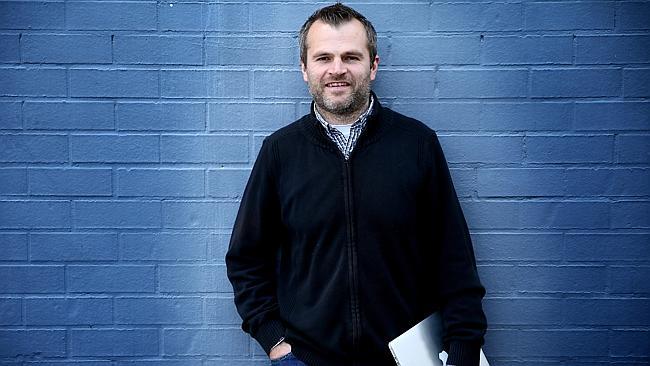Wise up when working from home
Working flexibly is not always what it is cracked up to be.

Workplace flexibility isn’t all it’s cracked up to be.
There are often extra hours worked at home at the expense of family and friends, and pressure to show an employer that time away from the office is worth approving.
Despite an international study from Randstad showing that 63 per cent of Australians would like to work remotely, it may not be as glamorous as it sounds and may have unexpected pitfalls, including copious unpaid overtime.
Time-management specialist and Advanced Business Abilities founder Mike Irving says workplace flexibility is having an adverse effect in the home and is putting a big strain on families.
He says it is not uncommon for people to check screens at every blip, beep or flash, to scan emails, monitor social media or check work-related websites at the expense of communicating with family and focusing on home tasks, whether they be preparing dinner, eating meals, helping children with homework or putting them to bed.
Irving says digital connectivity is creating a disconnect between people as employees spend more time away from the office working, while home lives suffer.
He says this can apply equally to people who work from home — where they feel they have to compensate and prove their worth by doing extra hours — and for those who use flexibility provisions to attend personal events or medical appointments.
“What we’ve seen and what the data shows is that if you get flexibility during working time to go to the dentist or your child’s recital, it can end up being that you work an extra 20 hours for the three hours you take off,” Irving says. “Feelings of guilt slip in, expectations of you wanting to get ahead happen, you end up doing more than what is in your original agreement.”
Digital connectivity means it is easier for people to work away from an office or to take time off during the day and make up hours at night, but Irving says employer expectations can get out of hand particularly as workers find it hard to turn off.
Irving says the key to stop people working unpaid overtime at the expense of home lives is being clear on their role, and that includes holding tough conversations with employers. It can be difficult to raise the issue with a boss, particularly when additional hours are unpaid and unreasonable, but Irving says it is essential.
“Communication is key — make sure it is discussed and preferably before the event happens,” he says. “The real challenge is the individual having clarity on the agreement they’ve made with themselves (to switch off and prioritise their life) because if you don’t keep those agreements there are much wider implications. Family relationships are affected; self-esteem in children can fall if they don’t get attention from their parents.”
Irving says individuals need to prioritise their time and additional hours, have tough conversations with employers and say no to unfair requests. Time management is about control, Irving says, and there are four factors to consider.
He says being aware of how much time you engage with a screen is important because it can mean neglecting others.
The second is a person’s intention to react to devices and other work instruments.
The third is interest and showing those around you that you are focused on them.
Irving’s fourth factor is attention span, which he says cannot be trained or improved. “If you use 15 per cent of your attention to check your phone, that’s 15 per cent of your time that’s gone.”
Despite the pitfalls, Randstad’s research shows interest in working remotely is gathering pace in Australia.
The international recruitment firm found that while 35 per cent of Australians wanted to work in an office each day, 63 per cent wanted to work from home at least occasionally.
The figures were similar in other countries, with 64 per cent of 200,000 workers in 25 countries wanting to work from home at times.
Of those who want to work from home, 12 per cent of Australian employees want to work remotely every day and 11 per cent internationally do not want to go into the office.
The survey also found 52 per cent of Australians want to work flexible hours rather than a standard working week, which could include longer days and shorter weeks, or flexible workdays each week.
Online marketing company Digital Kaizen’s managing director Fabian Linge allows his team flexibility but makes sure they switch off when their hours are complete.
Most of his team work remotely and several track their hours via workplace and freelance task and time-management site Upwork, ensuring they get paid for the time they put in rather than undertaking too many additional hours. Linge does not expect them to work unpaid overtime.
“I may email them outside office hours but I don’t expect them to answer until the next day,” Linge says.
“It’s the same with my clients. I may receive and read an email at night but I tell them I may not reply until the next morning.”
Linge recently evaluated his after-hours work with Irving, and across a two-week period accounted for every minute each day. He found he was spending hours looking at websites at night because he considered it a hobby rather than as work, when he could have been spending time with his partner, friends or doing other activities. He now schedules his personal and work time to make the most of what he is doing.
“It’s about being intentionally aware of time,” he says.
“Time is the most valuable resource available to us and it’s important to use it wisely and not throw it out the window.”


